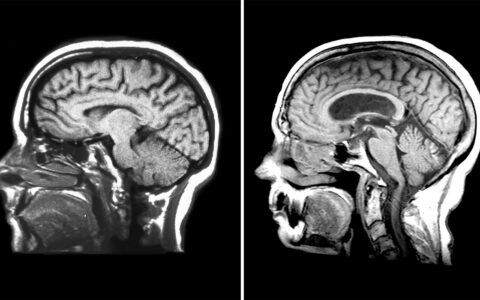Vanderbilt University Medical Center neurologists have learned new details about the brain’s hyperpolarization-activated cyclic nucleotide-gated (HCN) ion channels that may lead to new targets for treating major depressive disorder.
The work, published in Science Translational Medicine, also illuminates possible pathways to achieving better efficacy with existing medications, said Dane Chetkovich, M.D., chair of the Department of Neurology and one of several Vanderbilt authors on the study.
“In this study, we investigated the role of intracellular cAMP (cyclic adenosine monophosphate) and found that increasing cAMP acutely limited spatial memory and motivation,” Chetkovich said.
“Yet chronically higher cAMP levels led to disrupted HCN channels and relieved the cognitive deficits caused by chronic stress in mice.”
Ties to Depression
Evidence that heightened HCN function inhibits motivated behavior caused the researchers to surmise that it also may be limiting the therapeutic effects of existing medications available for patients with major depressive disorder, one of the leading causes of disability.
“Major depressive disorder has associated cognitive dysfunctions that pose serious challenges for patients,” Chetkovich added.
Channel Changes
Previous studies have established that HCN channels in the dorsal hippocampus influence cellular excitability and have a role to play in cognition. Recent rodent models also have shown that chronic stress can be tied to changes in the dorsal hippocampus that result in cognitive defects.
Exploring further, the Vanderbilt researchers designed a mouse model in which the HCN channels in the dorsal hippocampus are knocked out by chemogenetic technology. The researchers found a reduction in the amount of time the mice spent immobile during tasks, thus detecting an “antidepressant-like” effect on the subject animals, according to the article.
Therapeutic Implications
To investigate if their studies had implications for human patients, the researchers performed a quantitative RT-PCR using postmortem samples. Increased HCN expression in the hippocampus was noted in patients diagnosed with major depressive disorder, unlike that of the control samples.
These findings suggest that putting limits on HCN function may be a new avenue to regulate depression, the authors said. HCN1 protein expression in particular has been most closely linked to changes in the dorsal hippocampus and symptoms of depression.
“We speculate that compounds that limit HCN1 channel function in the dorsal hippocampus could be used as antidepressants by specifically treating the cognitive symptoms associated with chronic stress based on the observation that chronically elevated cAMP was sufficient to rescue spatial memory and motivated behavior,” the authors wrote.
Mood disorders, including depression, affect one in 10 adults in the United States each year and is the largest cause of disability for individuals ages 12 to 44.





